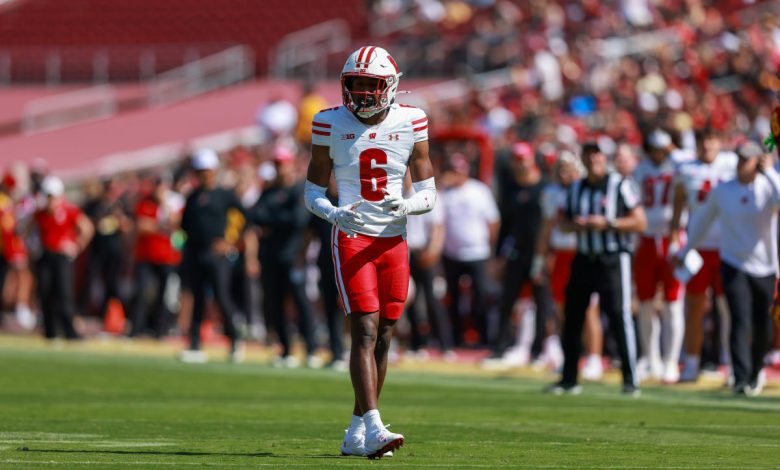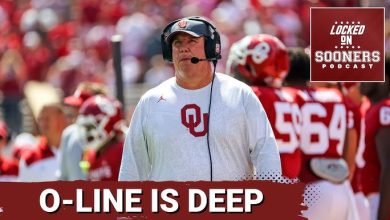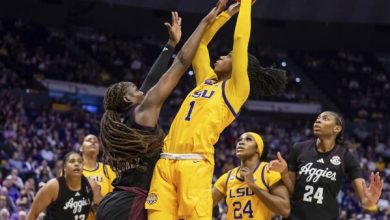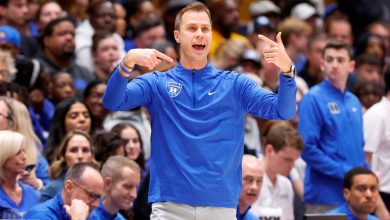What is the current status of Wisconsin’s conflict with former defensive back Xavier Lucas and the Miami Hurricanes?

The transfer of cornerback Xavier Lucas from the University of Wisconsin to the University of Miami has ignited a complex dispute involving allegations of tampering, questions about Name, Image, and Likeness (NIL) agreements, and interpretations of NCAA transfer regulations. This situation not only underscores the evolving dynamics of college athletics but also highlights the challenges institutions face in navigating new NIL landscapes.
Background on Xavier Lucas
Xavier Lucas, a four-star recruit, joined the Wisconsin Badgers in 2024. Despite arriving in the summer, he quickly integrated into the team’s defensive lineup. Over the first six games of the season, Lucas earned significant playing time, notably excelling in the game against the Purdue Boilermakers. His performance garnered a 78.0 coverage grade from Pro Football Focus, ranking him as the third-highest-graded true freshman cornerback in college football at the time. citeturn0news10
The Transfer Dispute
In January 2025, Lucas made the decision to transfer to Miami without entering the NCAA transfer portal, a move that Wisconsin contested. The university cited a two-year revenue-sharing agreement Lucas had signed, which they argued restricted his immediate transfer and participation at another institution. Wisconsin alleged that Miami had engaged in impermissible contact with Lucas prior to his transfer request, suggesting potential tampering violations. citeturn0search2
Lucas’s attorney, Darren Heitner, refuted these claims, asserting that the revenue-sharing agreement was contingent upon a pending settlement and Lucas’s enrollment in spring 2025 classes, neither of which had occurred. Heitner emphasized that Lucas had unenrolled from Wisconsin without receiving any payment and was within his rights to transfer and compete immediately at Miami. citeturn0search6
Legal and Institutional Perspectives
The crux of the dispute lies in differing interpretations of NIL agreements and transfer regulations. Wisconsin’s stance is that the revenue-sharing agreement, once signed, imposed certain obligations on Lucas, including restrictions on transferring. They argue that Miami’s involvement in Lucas’s decision to transfer constitutes tampering, violating NCAA bylaws. citeturn0search7
Conversely, Heitner contends that such agreements cannot bind student-athletes indefinitely, especially when contingent conditions are unmet. He points out that the NCAA’s current framework does not permit direct payments from institutions to athletes, rendering Wisconsin’s agreement potentially unenforceable. He also highlights Lucas’s personal circumstances, notably his father’s illness, as factors influencing the transfer decision. citeturn0search5
Conference and Legal Implications
The Big Ten Conference has expressed support for Wisconsin’s position, emphasizing the importance of upholding institutional agreements and maintaining competitive integrity. This situation may prompt a broader examination of NIL policies and transfer protocols, as universities seek clarity on permissible practices and protections for student-athletes. citeturn0search8
Potential Outcomes
The resolution of this dispute could set significant precedents for future cases involving NIL agreements and transfers. If Wisconsin’s claims are upheld, it may lead to stricter enforcement of institutional agreements and heightened scrutiny of transfer processes. Alternatively, if Lucas’s actions are deemed permissible, it could embolden other student-athletes to navigate the evolving NIL landscape more assertively, potentially challenging existing institutional controls.









